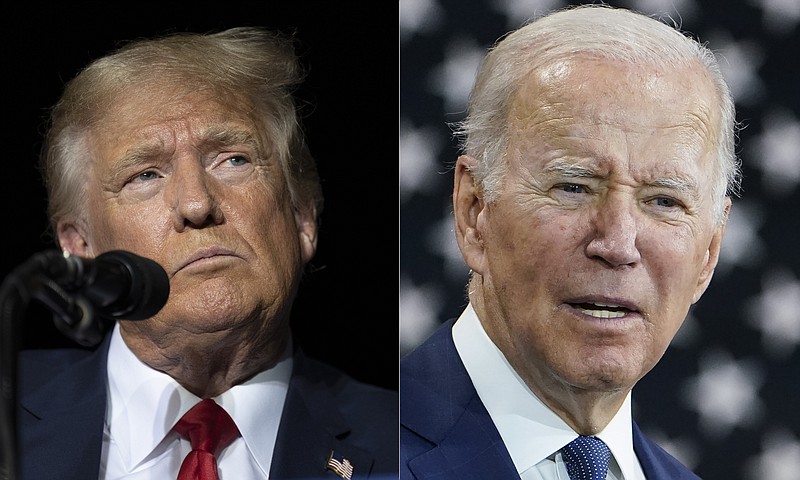The New York Times and Siena College recently released the results of a presidential match-up poll for six battleground states for 2024, finding Donald Trump leading President Biden in five of them. How concerned should Biden's supporters be about this?
There are a few things to consider here. First, a poll is a snapshot of how things appear now, not a forecast of how they will appear on Election Day, which is a full year away.
That is important, but why is Trump polling ahead of Biden now? After all, doesn't Trump face 91 criminal indictments pending against him, along with legal challenges under the 14th Amendment questioning his ability to run again for office? Didn't he lose the last election and, in its wake, organize a violent attempt to overturn that contest? And isn't Biden presiding over a growing economy and declining inflation with historically low unemployment? Doesn't he have a great deal of legislative achievements to point to? Didn't he lead Democrats through two solid elections in 2020 and 2022?
The answer to all these questions is yes. But none of these guarantees that voters will reward Biden or punish Trump. Indeed, what we're seeing is a reminder of two important rules of American political campaigns.
The first rule is that voters have very short memories. Voters don't really assess presidents on whether they're better off now than they were four years ago; the horizon is much closer than that. It's not that voters don't remember Trump's presidency or the violent way it ended; it's just that they increasingly care less about that than they do about more recent events.
The second rule is that elections are about the incumbent — even when the challenger was the incumbent not too long ago. Biden is trailing in these polls because he's somewhat unpopular, with approval ratings hovering close to 40%, despite favorable economic conditions. People are dissatisfied with the country, and when they are, they take it out on the incumbent. Since the COVID pandemic, there's been a large and growing disconnect between how the economy is behaving and how Americans perceive it.
The New York Times/Siena College survey may also be significantly understating Biden's support and overstating Trump's. Trump's supporters are particularly exercised right now because he is under attack from a variety of sources and their first reaction is always to defend him. Biden, who is in the midst of making hard calls on Israel, Ukraine and other difficult domestic issues, is invariably going to be making many people upset, even within his own coalition. This tends to look bad for an incumbent in a non-election year, but partisans pretty typically "come home" to their parties during an election year as they are reminded of the stakes.
And there are a number of ways in which that poll struggles to pass the smell test. It shows 22% of Black voters backing Trump when he won 12% of that demographic in 2020, with that figure often below 10% for Republican presidential candidates. The poll shows voters under 30 preferring Biden by only one percentage point; Biden won that group by double digits three years ago.
Is it possible that these Democratic leaning groups have moved so quickly in the Republican direction? It's possible, but not particularly probable.
One thing we do know is that presidential election results have been pretty rigid in the last two decades. Trump got 46% of the vote in 2016 and 47% in 2020; he'll probably do around the same in 2024 if he is the Republican nominee. Chances are, we're going to end up with a very close election, with the winner being determined by just tens of thousands of voters in a handful of swing states. This is the way elections are going in this era, and we don't need a poll to know this.
Seth Masket is a professor of political science and director of the Center on American Politics at the University of Denver.
